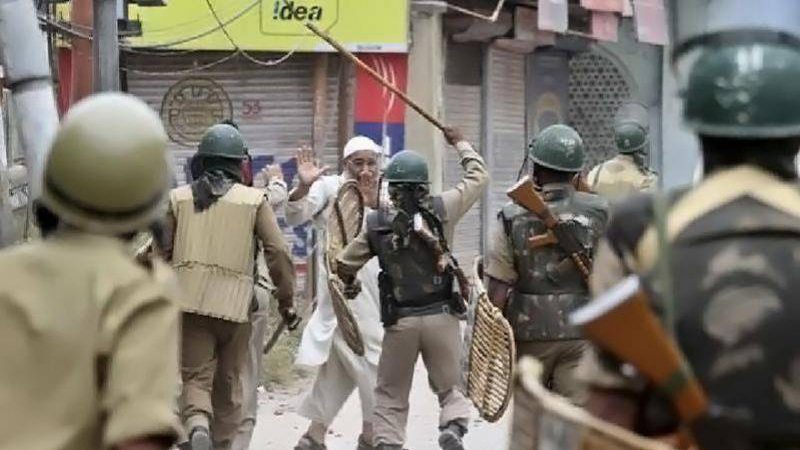 Speakers have hailed the way Kashmir issue has come to be acute concern of the international community in the aftermath of August 5, 2019 revocation of Article 370 and 35 A of the Indian constitution by Indian government nullifying independent status of Kashmir.
Speakers have hailed the way Kashmir issue has come to be acute concern of the international community in the aftermath of August 5, 2019 revocation of Article 370 and 35 A of the Indian constitution by Indian government nullifying independent status of Kashmir.
Dr. Burfat, in his presidential address said that the will of the people of Kashmir counted supreme as it related to their lives and the lives of the generations that were to come.
“This seminar condemns in consensus Indian violence, Indian bid to flip in its favor the demographic landscape of the valley and ruthless use of formidable force to suppress judicious voice of people of Kashmir”, the VC remarked.
Dr. Burfat further said that war between two nuclear states entailed catastrophic disasters, hence it had better be treated as a last, not-to-be desired option, whereas ‘dialogue’ be opted as a peaceful means to hammer out mutually-agreeable deal.
“India needs to shun its belligerent, bellicose, hate-motivated, irresponsible and irrational attitude to move ahead on Kashmir imbroglio in the interest of global peace”, Dr. Burfat asserted.
Keynote speaker, member PM’s strategic policy planning cell and Director, KU Centre for European Studies Prof. Dr. Uzma Shujaat said that South Asia was a region, where as a colonial legacy, all major nationalist and ethnic conflicts had a long and chequered history.
“To resolve Kashmir conflict, one needs to demystify its overlapping layers like culture, religion, identity and ethnicity to formulate a viable reconciliation policy framework”, Dr.Uzma opined.
Dr. Uzma said India had never been a secular state; it had rather always projected disguised communalism as secularism as an eye-wash for the world. “Government of Pakistan should engage its civil society, youth, academia, intelligentsia and media to change public perception on Kashmir issue. Pakistan also needs to be Kashmir-centric if it wished to win global support”, Dr. Uzma stated.
Writer, additional secretary Sindh Government, scholar said India had been defeated at the diplomatic front, as the world powers had begun mounting pressure on it to end HR violations in the valley and to stop inclement use of sinister state machinery to quell just struggle of people of Kashmir.
“As an expert, I recommend to Government of Pakistan to approach International Court of Justice for revocation of Article 370 and 35 of the Indian constitution”, Dr. Shaikh urged.
Scholar Dr. Sumera Umrani stressed the need for pitching ideological battle in lieu of violent war to combat the conflict. She advocated the need for channelising intellectual property of youth to reverse people perspective to pro-Kashmir paradigm. She also impressed upon youth to act as national and international Kashmir cause ambassadors.
Chairperson SU International Relations Department Dr. Ishrat Afshan Abbasi shared a broad thematic outline of the seminar contouring what, why and how of the concept of internationalisation proving Kashmir conflict a global problem to Indian disadvantage.
Director SU Pakistan Study Centre Prof. Dr. Shuja Ahmed Mahesar addressed aspects including historical constitutional positions of Pakistan and India on Kahsmir, Kashmir as NOT a part of India, emerging global Kashmir picture, Kashmir as a nuclear flashpoint and the role of international community in the given context.
The seminar culminated over award of certificates to the presenters and an audience-speakers discussion session.